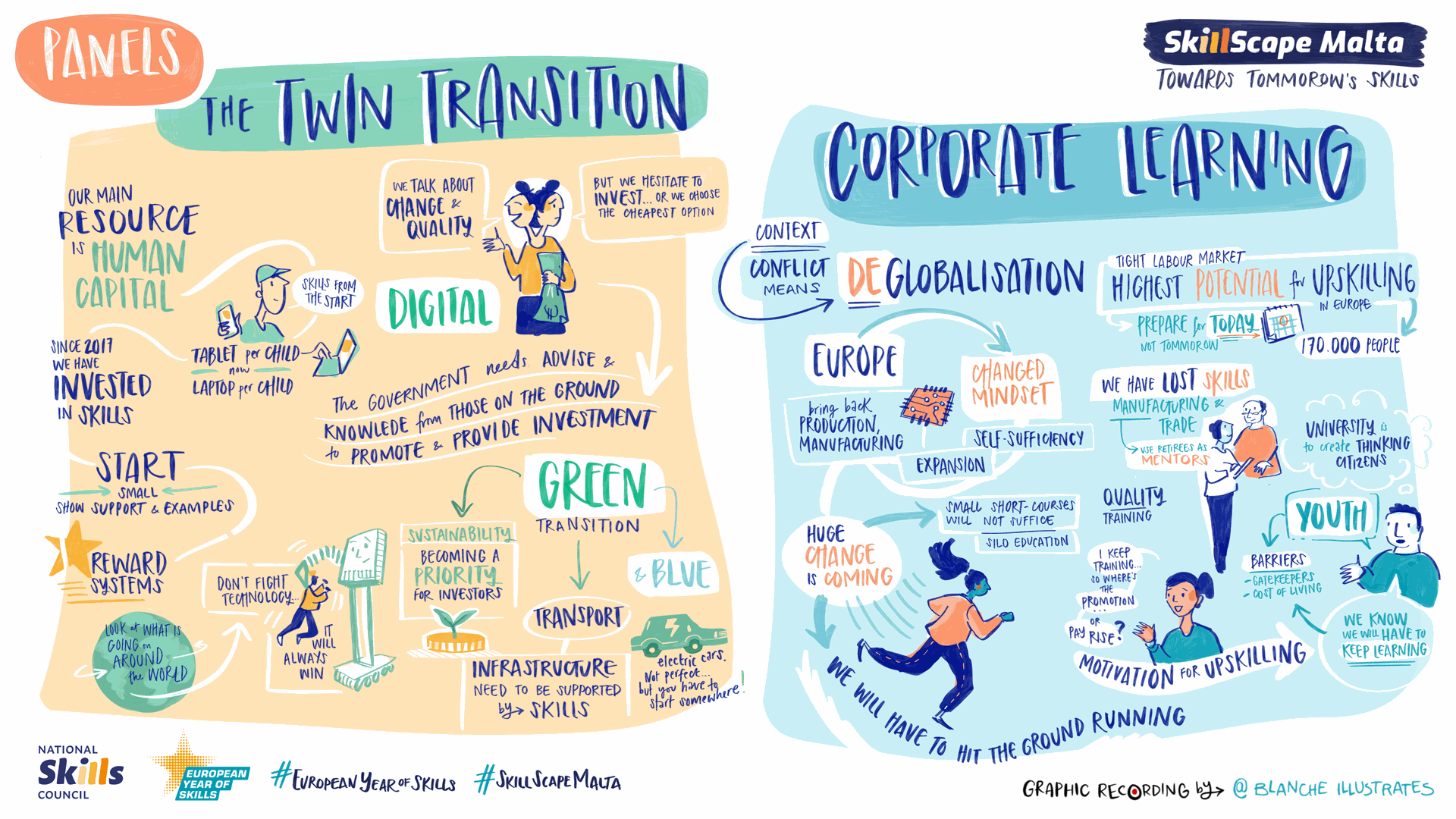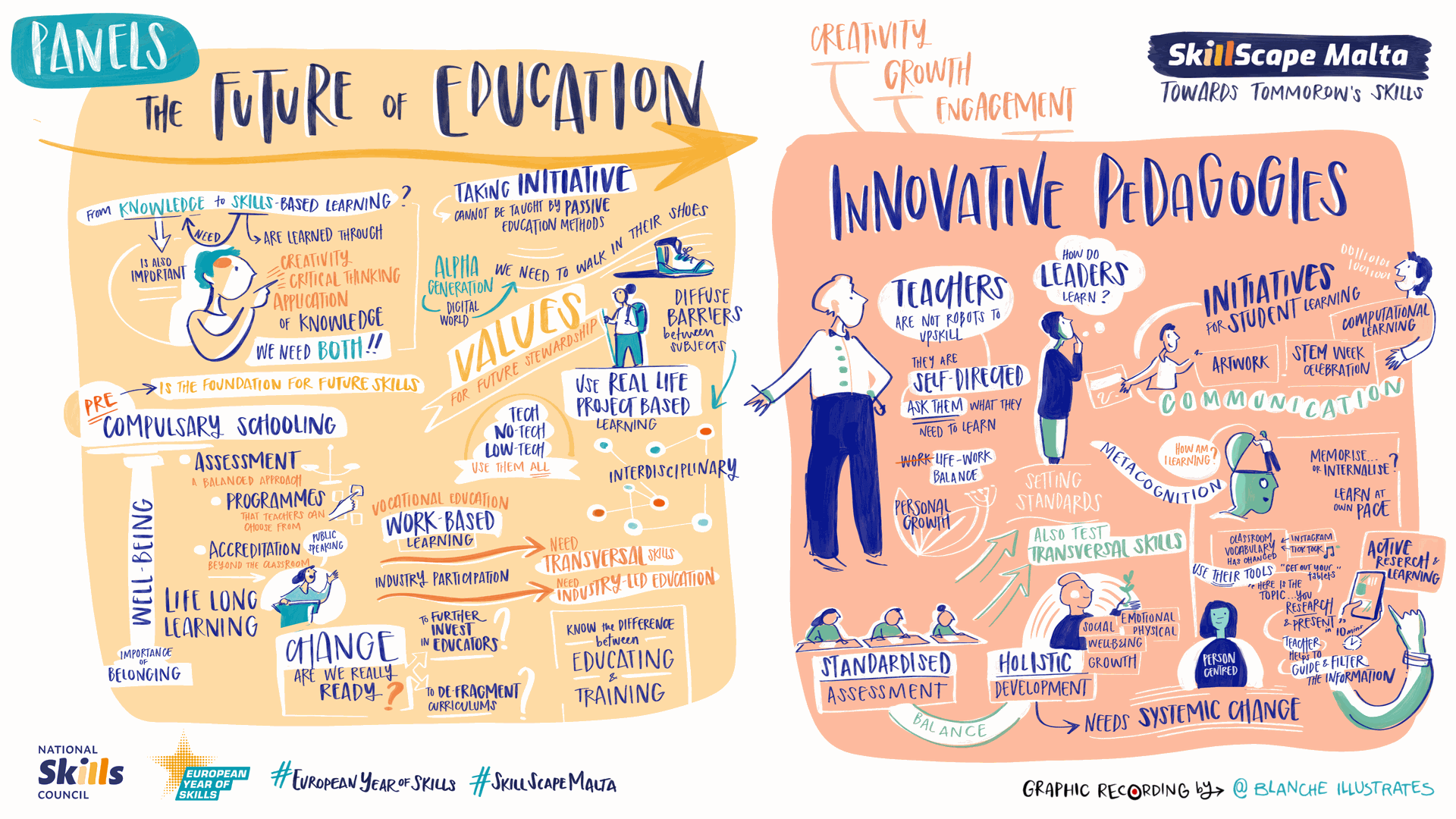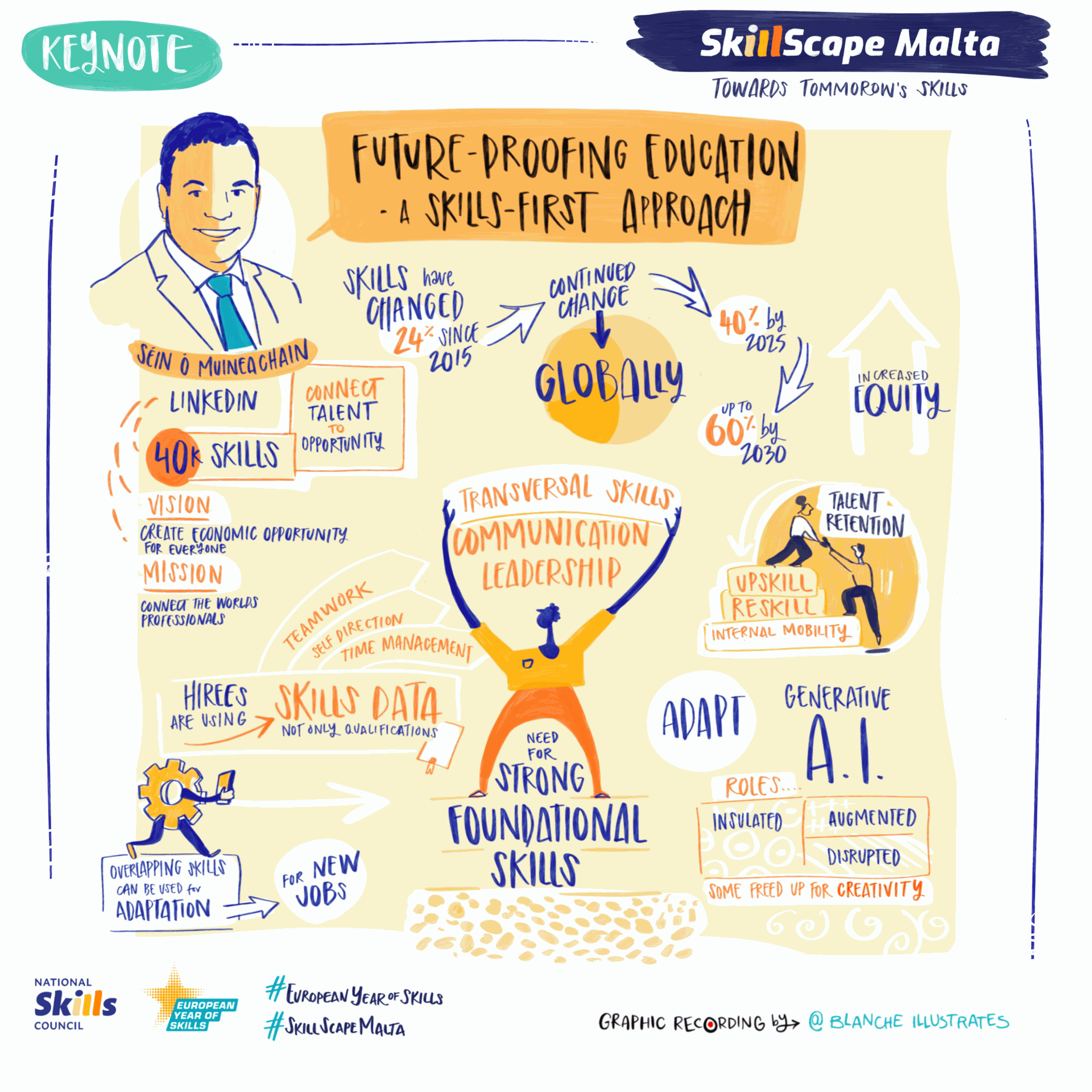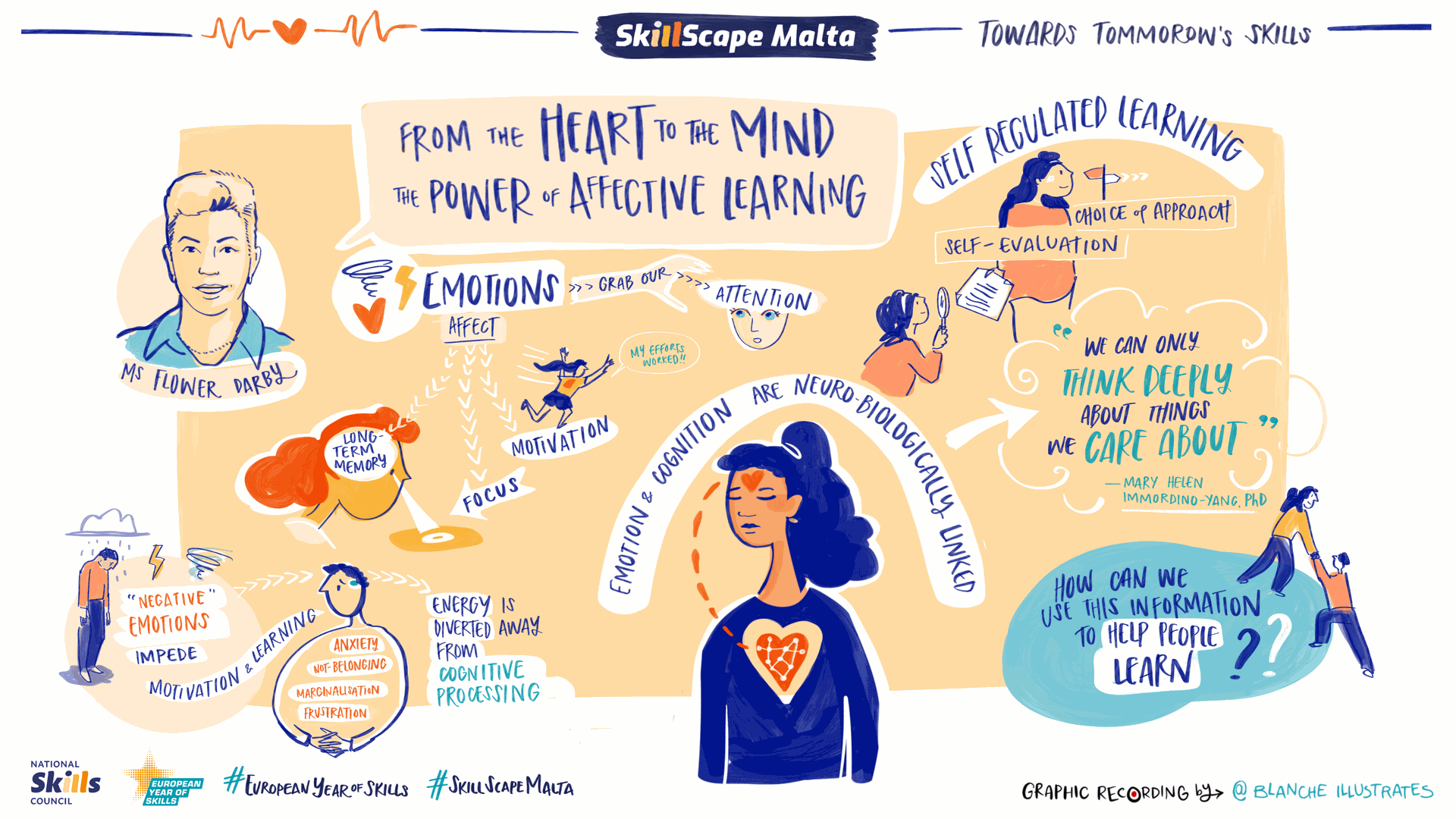Further to the deliberations that took place during the conference, but also resulting from discussions with stakeholders leading up to this event, six key recommendations emerged, as outlined below.
1. Empowerment and wellbeing. It is important to focus on feeling good about ourselves and being strong in all aspects of our life. This means taking care of our physical, mental, and emotional health, which can be achieved through leading a life with purpose, and self-care practices like exercise, meditation, and therapy. By doing so, individuals will be better equipped to take on challenges and handle whatever life throws their way.
Education and skills development are founded on the principles of empowerment, inclusion, and wellbeing, which are essential for fostering holistic growth for learners and educators alike. It is crucial not to diminish the importance of mental health, and by extension giving equal importance to the provision of sufficient resources and support systems to encourage emotional and mental wellbeing.
2. Transversal and basic skills as important areas of development. It is crucial to build a strong foundation in these skills for future success. Whether it is communication, problem-solving, or critical thinking, developing these skills will benefit individuals in all areas of life. So, individuals should take the time to invest in and prioritize cultivating these abilities.
Embracing the fast-paced changes in our world requires a transformation of how we educate. Our approach advocates for prioritising "Skills and Attitudes" that cut across different fields rather than just static knowledge. To accommodate this, the Council proposes the streamlining of syllabi content to avoid duplication, and the increased uptake of implementation of innovative teaching methods. By regularly assessing learners, the growth of crucial lifelong skills and attitudes can be measured.
3. Improve one’s competencies through Continuous Professional Development (CPD). Through regular updates and learning opportunities, individuals can enhance their talents and capabilities. The importance of CPD cannot be emphasised enough, and it's crucial for career growth and development. It affirms an individual's commitment to professional excellence and is beneficial for both personal and organisational success. By prioritising CPD regularly, one can stay up-to-date with the latest trends and techniques in their respective fields. This pursuit of knowledge will not only benefit the individual but also their colleagues, clients, and stakeholders.
Encouraging individuals to seek out continuous learning is crucial and unavoidable. This applies to all industries, including education. It is vital to remain informed and current in one's career as it displays a deep commitment to professional growth and social responsibility. Pursuing well-rounded, top-notch CPD courses should be mandatory, with incentives offered to motivate professionals to participate.
4. Digital Literacy, Green initiatives, and Active Citizenship are all important areas of focus. Encouraging citizens to take an active role in the community and promoting sustainable practices are crucial for creating a better future. Furthermore, developing digital literacy skills will help people navigate the ever-expanding world of technology. Focusing on all three areas will not only benefit individuals but also society at large.
Digital literacy, green awareness, and active citizenship are vital aspects of today's world. By mastering these skills, individuals can better tackle future obstacles while actively participating in society and encouraging sustainable development. In fact, these abilities are fundamental to creating a greener and more digitally advanced world.
5. Enhancing Lifelong career guidance through the setting up of a National Career Guidance Network. Such network would bring together all pertinent stakeholders in the field to pave the way for a National Career Guidance Framework. Lifelong career guidance should continue striving to offer personalised and evidence-based support to each individual seeking guidance. Additionally, it is important to inform those seeking guidance of potential career paths that they may have not yet considered.
Emerging industries, specific sector skills, and job trends should be part of a comprehensive and continual career resource accessible to everyone, even beyond compulsory education. Career specialists need to stay informed and equipped to provide guidance on career options, always staying current with the latest industry developments.
6. Access to training is critical for team members to continually learn, and employers have a key role in promoting this culture. To achieve this, it is important to provide training opportunities throughout the day, even during working hours. Quality apprenticeships and flexible micro-credentials are beneficial to both businesses and educational institutions, making it a mutually beneficial arrangement.
It is in our collective interests to unlock Malta's skills potential and create a brighter future for all, hence the Council encourages stakeholders to embrace and adopt these recommendations. The National Skills Council has certainly taken them on board in its path to developing Malta’s first Skills Strategy, a project that it has embarked upon since its establishment earlier this year.




